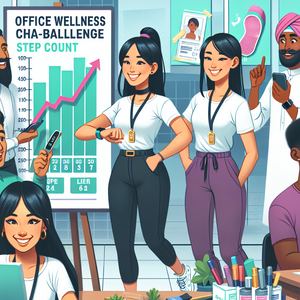Culture and Community at People-MakeUs: How Locations Shape Employee Experience

Each office location of People-MakeUs is steeped in its local culture, significantly impacting workplace atmosphere.
Tokyo: Harmony and Respect
In the Tokyo office, employees embrace a culture of respect and harmony, participating in traditional practices such as morning meetings that include a moment of silence to reflect on daily goals. Akira, a project manager based in Tokyo, states, “This practice not only centers us but also aligns our team’s focus, creating a supportive environment where everyone feels valued.” Such local customs foster a sense of unity and purpose, reinforcing the importance of mindfulness in the workplace.
Austin: Vibrancy and Individuality
Conversely, the Austin, Texas office thrives on a more casual and vibrant atmosphere. With a number of outdoor team-building activities, such as barbecues and music festivals, employees feel encouraged to express their individuality. Maria, a software developer from the Austin office, explains, “The relaxed environment allows us to bond over shared interests outside of work, fostering camaraderie and collaboration that extends into our projects.” The local culture facilitates a creative and energetic workplace, leading to innovative ideas and strengthened team dynamics.
Team Interactions and Collaboration
The way teams interact at People-MakeUs can vary significantly depending on location.
London: Cross-Departmental Innovation
In the London office, employees frequently engage in cross-departmental brainstorming sessions, which are not only encouraged but also integrated into the workweek. Sarah, a marketing strategist, shares, “These sessions bring together diverse perspectives, and having that regular interaction with different departments helps us innovate and approach challenges from multiple angles.” This collaborative approach nurtures creativity and enhances problem-solving capabilities across the organization.
Bangalore: Mentorship and Community Spirit
In contrast, the office in Bangalore emphasizes mentorship and collaboration within teams. The company’s ‘buddy system’ pairs new hires with seasoned employees, facilitating a smooth transition into the work culture. Raghav, a recent graduate and new hire, shares his experience: “Having a buddy to guide me through my early days not only helped me acclimate but also made me feel supported in a new environment. It’s a practice that reflects the community spirit at People-MakeUs.” Such initiatives foster a sense of belonging and ease the challenges associated with starting a new job.
Office Environment and Employee Engagement
The design and layout of office spaces also play a crucial role in shaping employee experiences.
New York: Open Collaboration
The New York office features open layouts and collaborative spaces designed to encourage spontaneous interactions and creativity. Jenna, an operations analyst, mentions, “The open space fosters a sense of transparency and encourages us to communicate freely, which enhances our teamwork.” This design philosophy promotes a culture of openness and continuous dialogue, which is essential for innovation.
Berlin: Balance of Focus and Collaboration
On the other hand, the office in Berlin has embraced a more traditional setup, with quiet zones for focused work alongside collaborative areas. Lukas, a data scientist, notes, “Having the option for quiet workspaces allows me to concentrate deeply when needed, while the collaborative areas provide the opportunity for brainstorming sessions with colleagues.” This balance caters to diverse work styles, ensuring that employees can perform at their best.
The employee experience at People-MakeUs is profoundly influenced by the varying cultural, social, and environmental aspects of its global offices. By understanding how local customs, team interactions, and office layouts contribute to a unique workplace culture, we can appreciate the diverse tapestry that constitutes the People-MakeUs community. Employee stories highlight the importance of these factors in fostering a sense of belonging, collaboration, and innovation. As People-MakeUs continues to expand its global footprint, the commitment to nurturing a positive and inclusive workplace culture will undoubtedly remain a cornerstone of its success. In conclusion, the interplay between culture, community, and employee experience is vital for organizations like People-MakeUs, which strive to innovate and grow in an increasingly competitive landscape. By recognizing and celebrating the diverse backgrounds of its employees, the company can continue to build a cohesive and thriving workplace, ensuring that every individual feels valued and empowered to contribute to the collective success of the organization.
Employee Experience Specialist
Google, Microsoft, People-MakeUs
Core Responsibilities
Design and implement employee engagement programs that align with company culture across global offices.
Conduct surveys and focus groups to gather feedback and insights on employee satisfaction and workplace dynamics.
Collaborate with HR and management to identify areas for improvement in employee experience.
Required Skills
Strong communication and interpersonal skills to effectively engage with employees at all levels.
Experience with data analysis and reporting to track employee engagement metrics.
Familiarity with workplace culture trends and employee well-being initiatives.
Diversity and Inclusion Manager
IBM, Deloitte, People-MakeUs
Core Responsibilities
Develop and implement diversity and inclusion strategies to foster an inclusive workplace culture.
Organize training sessions and workshops focused on cultural competence and unconscious bias.
Collaborate with leadership to ensure diversity initiatives align with business goals and employee experience.
Required Skills
Expertise in diversity metrics and analytics to measure the effectiveness of inclusion initiatives.
Strong organizational and project management skills to oversee multiple programs simultaneously.
Experience in stakeholder engagement and communication, particularly in multicultural environments.
Workplace Culture Consultant
McKinsey & Company, Accenture, independent consulting agencies
Core Responsibilities
Assess and analyze organizational culture through interviews, surveys, and observational studies.
Provide actionable recommendations for improving employee engagement and collaboration based on cultural insights.
Facilitate workshops to help teams understand and embrace cultural differences.
Required Skills
Background in organizational psychology or human resources.
Strong analytical skills to interpret qualitative and quantitative data about workplace culture.
Excellent facilitation and communication skills to conduct workshops and presentations.
Learning and Development Specialist
Amazon, SAP, People-MakeUs
Core Responsibilities
Design and deliver training programs that promote employee growth and align with the company’s cultural values.
Assess training needs through performance evaluations and employee feedback.
Collaborate with cross-functional teams to create learning pathways that enhance employee skills and career development.
Required Skills
Strong instructional design skills, including proficiency with e-learning tools and methodologies.
Excellent presentation and teaching skills to engage diverse audiences.
Ability to adapt training materials to suit different cultural contexts and learning styles.
Global Talent Acquisition Specialist
LinkedIn, Facebook, People-MakeUs
Core Responsibilities
Develop and implement recruitment strategies that attract diverse talent aligned with company culture across different global locations.
Build relationships with local universities and professional organizations to source top talent.
Conduct interviews and assessments to evaluate candidates' cultural fit and potential contributions to team dynamics.
Required Skills
Proficiency in using Applicant Tracking Systems (ATS) and recruitment software.
Strong networking and relationship-building skills to engage with candidates and stakeholders.
Cultural awareness and sensitivity to effectively recruit in various geographical contexts.


